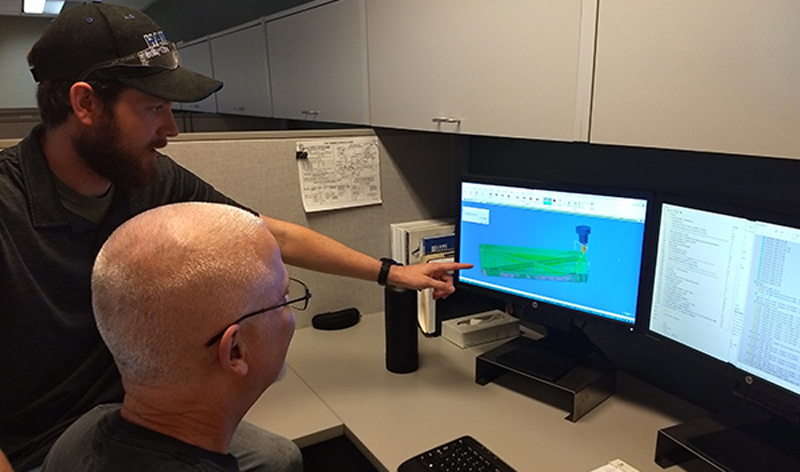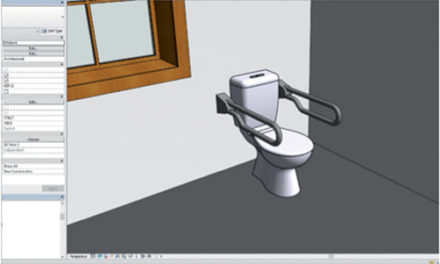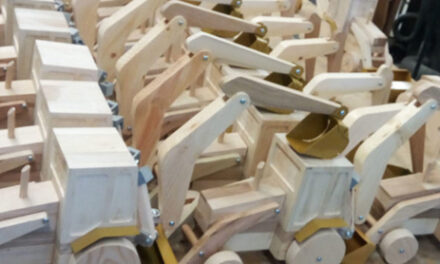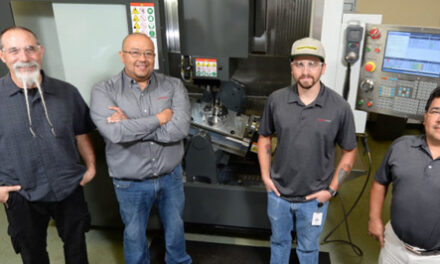Precision machining requires precision tools and cutting-edge CAD/CAM tool libraries. First part prove-out success—getting it right the first time—is mission critical to meeting the expectations of aerospace customers like Boeing and Airbus and what has kept Royell Manufacturing, Inc. in Everett, Washington, an industry leader in aerospace component manufacturing for more than forty years. When aluminum and titanium chips are “falling like rain,” hardware and software is working in partnership to ensure a smooth-running production line and premium aircraft components, from wings to nacelles to doors and interiors.
In 2018, Mastercam partnered with Harvey Performance Company, including its cutting tool brands Harvey Tool and Helical Solutions. Immediately, Mastercam users like Royell could access more than 15,000 tools from Harvey Tool and Helical Solutions brands on the Mastercam Tech Exchange.
This was fantastic news for Royell machinists. Prior to this arrangement, they would have to scour tool catalogs and manually enter tool specifications into Mastercam. Access to the tens of thousands of tools from the Harvey catalog meant they could easily download libraries and have the tool specifications automatically populate accurate and optimized data within Mastercam. It saved a lot of time.
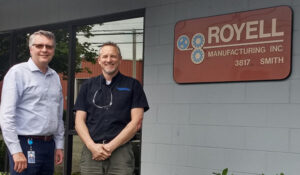 – Our goal is first part prove-out success, said Royell Methods Engineer, David Parkhurst. We run production material on our first part. That’s how confident we are with the systems that we have in place. Parkhurst said the addition of Harvey and Helical tool libraries to the Royell Mastercam solution gives them the precision their customers demand.
– Our goal is first part prove-out success, said Royell Methods Engineer, David Parkhurst. We run production material on our first part. That’s how confident we are with the systems that we have in place. Parkhurst said the addition of Harvey and Helical tool libraries to the Royell Mastercam solution gives them the precision their customers demand.
– When we’re proving out a part in even the most expensive block of titanium—if it’s a two-speed dynamic, a high speed toolpath—we’re proving that toolpath out at 100% rapid and 100% feed rate, he added. And we’re confident that the part is not going to be scrapped and the tool is going to make it through the cuts.
Mastercam works closely with Harvey Tool and Helical Solutions to test tools with different toolpaths and on a variety of machines. This is important for manufacturers like Royell. As David Parkhurst explained, 1990-era machines with limited tool library storage capabilities are in service next to 21st century machines with external hard drives for storing voluminous libraries.
– And with that, with all these operations and toolpaths that we develop, it’s as easy as going into the filter settings and making a couple of adjustments to have the same exact motion but reducing the file size to support the machine that requires, say, a smaller file, Parkhurst said.
In September 2019, Mastercam announced another tooling partnership with IMCO Carbide Tool in Perrysburg, Ohio, a manufacturer of high-performance end mills, burrs, routers, and die trimmers for a variety of applications in the aerospace, automotive, medical, petrochemical, and manufacturing industries. IMCO milling tools are available in the Mastercam 3D tool library for Mastercam 2019 and future releases, delivering quick access to IMCO performance milling tools from within Mastercam.
Access to a wide spectrum of technology allows Royell to be agile and cost-effective, providing world class components to customers on time and within budget. It also gives them a competitive advantage when quoting costs for prospective projects.
– Boeing and Airbus want their suppliers to be competitive on the global market, and it is about rapid implementation, Parkhurst explained. So, in a roundabout way, I think every new part award is challenging for us because we’re not just competing with the cycle time or how quickly we can turn the part. We’re competing with competitive wages and insurance, and what another supplier may be willing to do to reduce costs to get [awarded the bid for] a part.
Access to deeper tool libraries enables Royell to stretch its capability—and even more importantly—save money.
– We were doing an analysis on how to machine some tool taps and one option was using a 3-inch diameter slot mill and machining the underside of the taps with the slot mill, Parkhurst explained. And another option was to take advantage of the 5-axis capabilities of Mastercam. We took an end mill that was already in the tool package and rotated the machine in a position where an end mill could machine under the tabs. Mastercam gave us the ability to prevent purchasing an insert body tool of upwards of $2000 to machine a feature—and we could use an end mill that was already doing some other features to the part. It was cost effective as a result.
Enhanced tool capabilities enable Royell to leverage its end mills and prolong tool life—more cost savings that can be passed along to the customer.
– We regrind our own end mills internally, Parkhurst said. We have a very robust process to recycle end mills which reduce costs. Our company is very passionate about identifying root cause and corrective action, and, when we have tool breaks, we’re very confident that it’s not the toolpath motion. If a tool is breaking, I would bet that that toolpath wasn’t a Dynamic toolpath because we have seen tool life go through the roof using Mastercam’s Dynamic Motion toolpath. The ability it has to maintain angle of engagement and a consistent spindle load has really changed us from a financial standpoint and our tool life.
Michelle Nemeth

